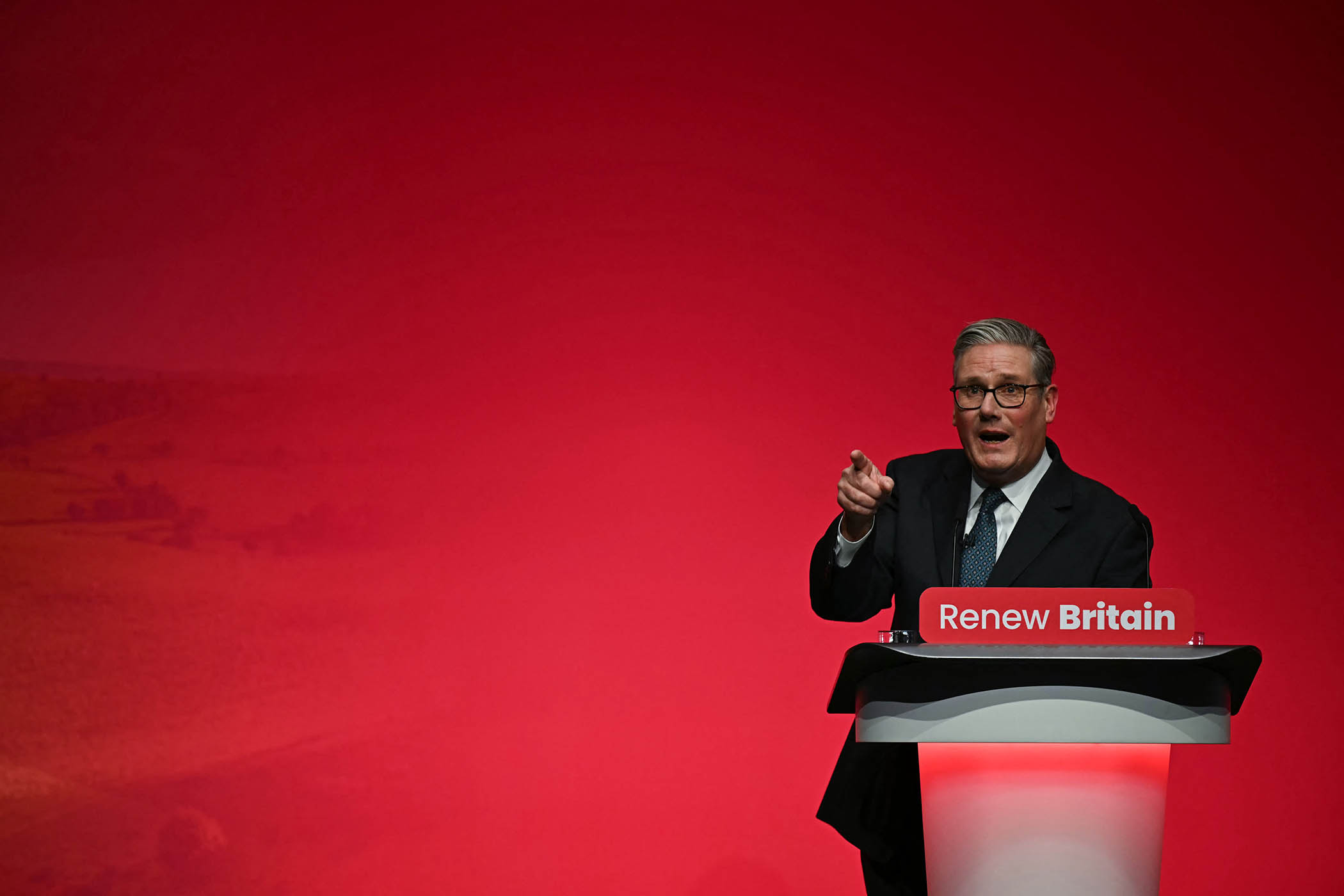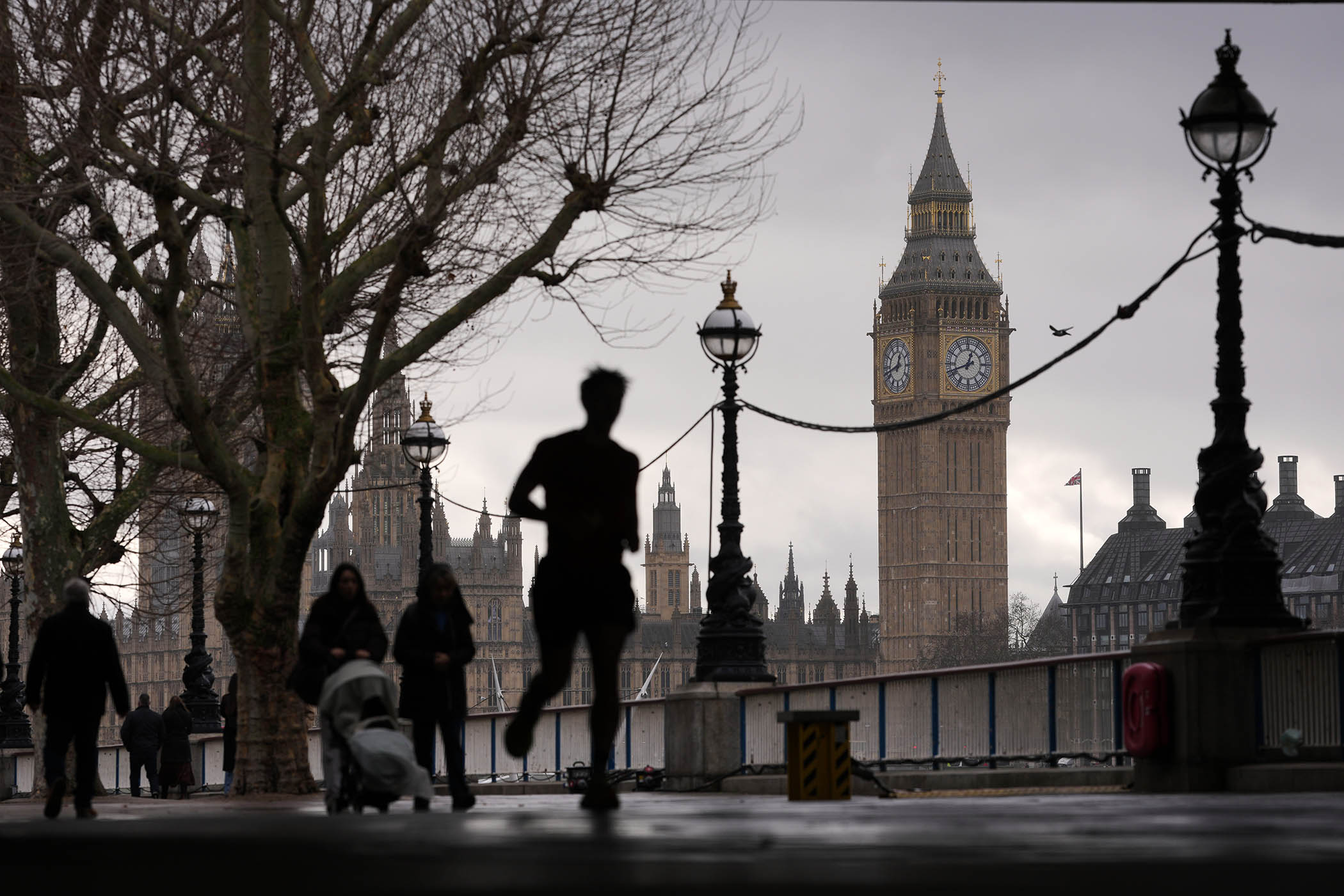He came. He spoke. They applauded. For all the seditious talk in the run up to this Labour conference, the tribal loyalty of the party kicked in for Sir Keir Starmer when he delivered his leader’s speech. There was a decent ovation when he’d completed his peroration about a Britain “built for all” and several standers during the speech. Labour MPs, whose revolt over welfare humiliated the prime minister not so long ago, bounced up and down like Duracell bunnies.
On the plus side, he carved out a dividing line and identified an enemy they can all agree on while providing a rallying cry for a party languishing dismally far behind Reform in the opinion polls. The “fight for the soul of our country” is a choice between “decency” and “division”, “renewal or decline”. After a rather flat and pedestrian start, the speech gained fire when he swivelled his focus to Nigel Farage. This section contained nearly all of his best lines. “The question I ask of Nigel Farage and Reform is, do they love our country? Do they want to serve our country – all of it – our beautiful, tolerant, diverse country? Or do they just want to stir the pot of division, because that’s what works for their interests?” Delegates had been armed with flags – the Union Jack, the Cross of St George, the Saltire and the Red Dragon – which were waved furiously when he declaimed: “Let’s fly all our flags, conference. Because they are our flags. They belong to all of us. And we will never surrender them.” The attacks on the politics of grievance and ethno-nationalism landed well.
The question I ask of Nigel Farage and Reform is, do they love our country? Do they want to serve our country – all of it – our beautiful, tolerant, diverse country?
The question I ask of Nigel Farage and Reform is, do they love our country? Do they want to serve our country – all of it – our beautiful, tolerant, diverse country?
Keir Starmer
As for the rest of the address, those searching for a definitive explanation of what Starmerism amounts to may have come away a bit disappointed. There were contradictions. He took a swipe at globalisation, saying the party had previously “placed too much faith in…its lazy assumptions.” Soon afterwards, he was extolling the sale of British-built warships to Norway – surely an example of globalisation. He said the state needs to be “more muscular”, while in the next breath attacking “the mindless bureaucracy that chokes enterprise” and speaking in praise of deregulation to help unleash additional economic growth.
He had some things to say to constituencies which Labour has upset, acknowledging that the government had “asked a lot” of business in Rachel Reeves’s first budget, which may imply that they won’t be on the receiving end of the additional tax rises she is highly likely to have to introduce in November. He also said things which the more leftish members of the audience won’t have liked. The fiscal rules are “non-negotiable” and anyone – hello, Andy Burnham – who thinks they can be wished away is indulging in fantasy and peddling “snake-oil”. He warned them to expect decisions which are “not cost-free or easy” and which will “not always be comfortable for our party”.
One speech will not – and could never hope to – turn around this prime minister’s fortunes
One speech will not – and could never hope to – turn around this prime minister’s fortunes
In terms of indicating the government’s future direction of travel, there was a distinct flavour of Blue Labour to quite a lot of it. He is scrapping the ambition, which began in the Tony Blair years, that half of all young people should go to university. Instead, he says that enhancing technical colleges will become “a defining vision” of this government. Apprenticeships, secure borders, flags: all very Blue Labour.
One speech will not – and could never hope to – turn around this prime minister’s fortunes. This one lacked the kind of phrase so compelling that it makes its way into collections of great quotations. Nor will it have settled the many doubts, disputes, and divisions briefly camouflaged by the sound of applause. One member of the Cabinet told me of their prediction that Labour MPs will soon be back in the Commons wincing at the polls, moaning about their lot and grumbling about their leadership. But Sir Keir can say that he has delineated the battle lines for the political future of Britain and armed his party with some serviceable war cries.
Photograph by Paul Ellis/AFP via Getty Images
Newsletters
Choose the newsletters you want to receive
View more
For information about how The Observer protects your data, read our Privacy Policy



